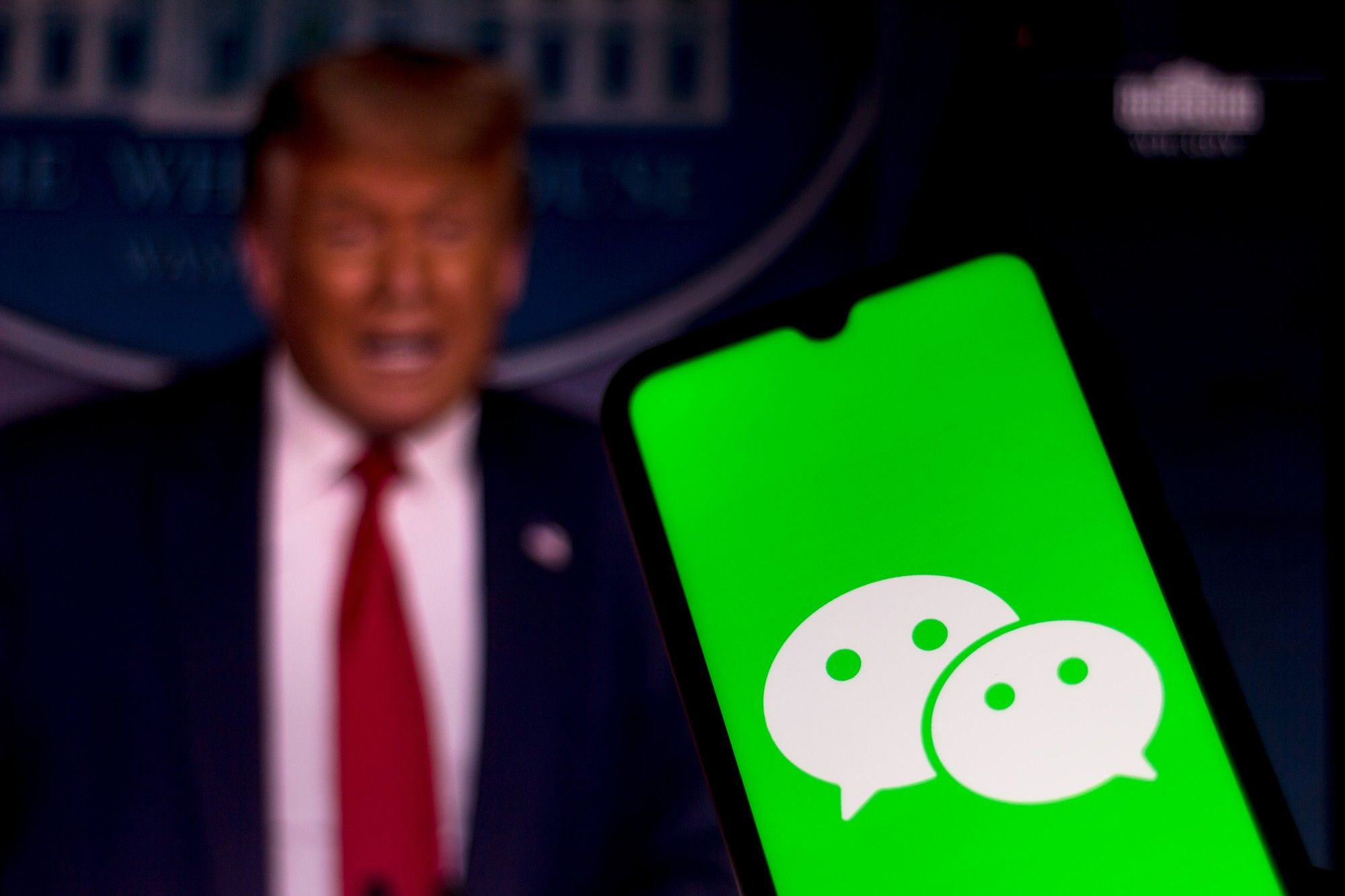Top Class Actions’s website and social media posts use affiliate links. If you make a purchase using such links, we may receive a commission, but it will not result in any additional charges to you. Please review our Affiliate Link Disclosure for more information.
UPDATE: On Oct. 15, 2020, the federal judge hearing the WeChat ban case says she is unlikely to lift her September preliminary injunction stopping the Trump administration from shutting down the app as the case progresses through the legal process.
The Trump administration, defending its ban on WeChat operations in the U.S., argued in court this week that the First Amendment doesn’t prevent it from limiting any communication service it deems a threat to national security.
A group of WeChat users sued the administration in federal court in August to strike down the ban and the judge presiding over the case ordered a temporarily halt on enforcement of it in late September. Lawyers for the administration filed a response Tuesday seeking to lift the injunction and clear the way for the government to enact the ban against WeChat and its parent company, Tencent Holdings Ltd.
President Donald J. Trump has said the WeChat ban is necessary to neutralize what he claims is a threat posed by the Chinese government, which has access to the user data harvested by Tencent, a Chinese company.
“The [People’s Republic of China] has conducted widespread, surreptitious and hostile informational attacks against the United States … and uses WeChat to amass data, monitor users, and control discourse,” the administration’s argument says. “These acts are not protected by the First Amendment.”
Trump issued executive orders calling for a ban on WeChat and TikTok, another social media and messaging app owned by a Chinese company, on Aug. 6. The WeChat Users Alliance and five individual users filed a lawsuit and request for an injunction against Trump and Secretary of Commerce Wilbur Ross on Aug. 21. Ross announced Sept. 18 that the Commerce Department was poised to begin enforcing the WeChat ban two days later, but U.S. Magistrate Judge Laurel Beeler intervened and issued an injunction preventing that.
The WeChat ban would forbid all app stores, including those operated by Apple and Google, from distributing WeChat and existing WeChat users would be blocked from updating or upgrading their apps. WeChat would also be prevented from conducting any transactions with users in the U.S. and from hosting or transferring internet traffic through the app.
WeChat offers users the ability to communicate directly with other users, read news and posted content, to pay bills, make travel reservations, shop online, and order takeout.
Tencent proposed creating an American version of WeChat to satisfy the administration, but U.S. officials said it was insufficient and insisted on the total WeChat ban.

Those conditions are not exclusive to WeChat; they have become an ingrained component of most social media and social chat services.
“[But] WeChat is unique on the American digital landscape in that it has quietly and profoundly reshaped the immigrant experience for one of the nation’s fastest growing ethnic populations, the estimated 5 million people of Chinese descent living in America,” The Times reported.
In siding with the WeChat Users and issuing the injunction against enforcement of the ban last month, Judge Beeler said the plaintiffs had shown there are “serious questions going to the merits of the First Amendment claim,” and the defendants had not shown enough evidence regarding theirs.
“Certainly, the government’s overarching national-security interest is significant. But on this record — while the government has established that China’s activities raise significant national security concerns — it has put in scant little evidence that its effective ban of WeChat for all U.S. users addresses those concerns,” the judge wrote. “And, as the plaintiffs point out, there are obvious alternatives to a complete ban, such as barring WeChat from government devices, as Australia has done, or taking other steps to address data security.”
Arguing for the injunction to be lifted, lawyers for the administration argued that the government “is concerned about a concerted effort by [China] to concentrate all communication reaching the Chinese diaspora onto the WeChat platform and then to exploit that monopoly to surveil individuals, control discourse, and collect massive amounts of U.S. person[al] data, including geolocation data and other intelligence, for adverse use against U.S. interests.”
“Such repressive activities are anathema to the First Amendment,” the administration said.
Are you a WeChat user? Tell us about it in the comment section below.
The WeChat Users Alliance and other plaintiffs are represented by Michael William Bien, Alexander Ross Gourse, Amy Xu and Van Swearingen of Rosen Bien Galvan & Grunfeld LLP; Keliang Zhu of DeHeng Law Offices PC; Thomas R. Burke and David Gossett of Davis Wright Tremaine LLP; Clay Xiu of Deheng Law Offices PC; and Angus Ni of AFN Law PLLC.
The WeChat Ban Lawsuit is U.S. WeChat Users Alliance, et al. v. Donald J. Trump, et al., Case No. 3:20-cv-05910-LB, in the U.S. District Court for the Northern District of California.
Read About More Class Action Lawsuits & Class Action Settlements:
Trump Campaign Lawsuit Seeks Access to Philly Satellite Election Offices
Trump Tests Positive for COVID-19 as Worldwide Death Toll Passes 1M Mark
















2 thoughts onTrump Admin Defends WeChat Ban Against First Amendment Claim
Add me
Please add me